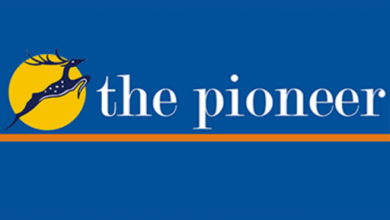Complexities of healthcare services & the need for holistic medical care

Thursday, 01 July 2021 | Dr BKS Sanjay & Dr Gaurav Sanjay
GUEST COLUMN
Health, Education, Nutrition (HEN) are the fundamental needs of any individual but both our government and society are ignoring these facts as exposed amidst the Covid-19 pandemic. Unlike other services, healthcare services are complex services which have many inherent variables which are usually not cognisable to the common person. There are many steps in providing healthcare services to a patient. The work ranges from small steps like administering an injection, to performing a specialised surgery and handling sophisticated expensive equipment.
Democracy has deeper roots in the mindsets of all citizens and hence, probably they prefer to get multiple consultations for any problem particularly if they have been advised surgery for a particular problem. Most of the patients and attendants think that a majority vote favouring or against surgery or advice is better to guide them. But this is usually not true. Particularly in situations where there is significant difference between skill, training, experience and current infrastructure available to the practicing doctor even in the same specialty. One thinks this trend is because of lack of trust between patients, their relatives and the doctors. They would initially go to a nearby doctor, get his ’emergency opinion’ and then get it re-checked by another doctor. And many times if there is a conflicting view, they end up with a third consultation and ultimately confuse themselves the most.
Here we would advise any patient to go to the doctor he trusts the most based on the doctor’s professional education and result oriented treatment. We see it routinely that nowadays decisions for surgery are being made as we make while buying a packet of chips. It is often thought that a surgery done by any surgeon, at any hospital will yield the same results. This is often untrue and in case of a poorly performed index surgery leads to a complicated treatment in the future which is much more expensive with unpredictable results. Often multiple consultations cause accidental over ingestion of the same drugs when communication between the physician and patient is not clear due to non-availability of previous prescriptions and a busy OPD with many leading clinicians. Apart from this over prescription of drugs is also a major problem. At times, the doctor may succumb to the current Indian mindset that if the doctor has prescribed none or few medications then he is unsure about the diagnosis. We think there is a general perception in the public that if a doctor is not prescribing a bundle of medication then either he is not concerned about the patient’s disease or lacks knowledge of the subject.
Everyone is afraid of infections. It is not only the patient and his relatives but the doctor too. Many times the doctor is afraid about the reputation of his practice, and hence he opts for prolonged and excessive use of antibiotics as an over-precaution especially when he does not know the exact diagnosis or cause of infection. Nowadays patients have become so over enthusiastic and are ignorant that they too demand for ‘high power’ /wide spectrum antibiotics even though there is no need for it.
Many quacks are prescribing medication just on their previous knowledge rather than evidence based clinical research. We have come to know from a medical representative that a quack will prescribe only new generation or recently introduced antibiotics in any case of fever with the understanding that the cause of the fever could only be bacterial infection and that the causative microorganism will definitely die as the new drug will not have any resistance compared to those which have been in practice for many years.
Covid-19 pandemic has again proved that health is the most important asset for an individual which every one of us should strive to maintain. Data shows that 80% of Covid-19 deaths occurred in patients who had pre-existing comorbidities like diabetes, hypertension, hyper-cholestereolemia, chronic respiratory disease, cardiac disease, atherosclerosis, cancer and smoking and alcohol abuse etc. There shouldn’t be an issue of one-upmanship of any doctor / allopathy/Ayurveda/homoeopathy. It is suggested that the goal should be to uplift the healthcare services of the country with all-out effort which includes all healthcare workers of all pathies. All pathies should be complementary to each other rather than being confrontational.
Here, we would like to emphasise certain basics of treatment. If you need any immediate relief then of course allopathy is helpful and on other hand in chronic diseases like diabetes, hypertension and arthritis etc. medicines developed by any other pathy may work up to certain extent and can be used based on evidence. Thirdly, surgery is usually needed in many mechanical problems like fracture, acute block of a vessel, presence of stone or acute obstruction of intestine, deformities, transaction of limbs etc. In such cases, medicine can’t correct the mechanical problems instantly and effectively.
Patient expectation should be rational and based on the state at which he arrives for treatment. Our ancient scriptures state that if there is birth there is development, degeneration, disease and death. If anything goes wrong by chance during treatment in hospital then family, friends and relatives of the deceased person should understand the truth- human beings are not immortal. Cause of death does not need to be apparent to the patient. Like a diabetic patient may die from a silent heart-attack or a severe crushing injury may cause acute renal failure. A layman may not understand how a muscle injury can cause kidney failure and such a person experiencing emotional upheaval may instigate violence in a hospital.
Being orthopedic surgeons, we would like to quote an example of a road traffic accident in which two people died on the spot, third one was on the way to the hospital and the fourth admitted in the hospital and only one was un-injured. In such a scenario, family and friends should understand that the result of treatment depends upon the severity of the accident, available facilities at the hospital, economic status of the patient and of course the skill of the surgeon. In our country in every case at least one factor exists or sometimes even more than one factor. These facts are never considered by the attendants before they take an emotional decision to assault the doctor and vandalise the hospital property. This behaviour often gives nightmares to healthcare workers and the hospital owners. It has been observed that seeing the incidents of vandalism, not many people are interested in medical profession as their career. The authorities are requested to check it legally and enforce the law lacking which the future of healthcare services will face serious problems.
(The authors are orthopaedic surgeons based in Dehradun. Views expressed are personal)





